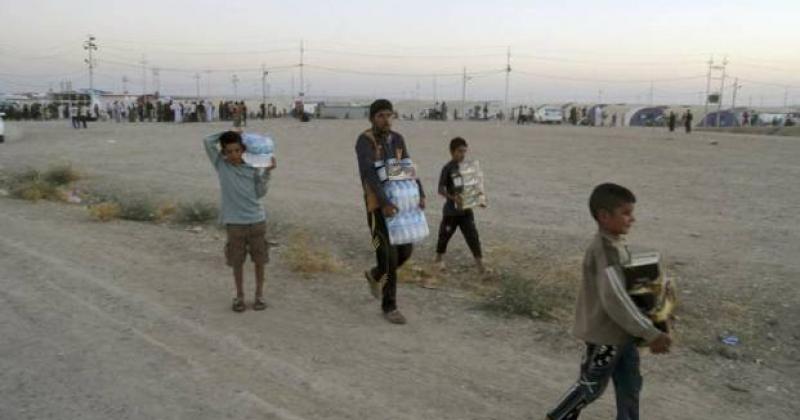Pope Francis condemns the violence of the Islamic State, asks for an intervention from the international community and supports ecumenism and dialogue with Islam. He also says that he hopes to have the chance to come to those Christian communities in person and to visit and to comfort them.
‘For many of you the music of your Christmas hymns will also be accompanied by tears and sighs. Nonetheless, the birth of the Son of God in our human flesh is an indescribable mystery of consolation.’ Francis wrote a Christmas letter to the Christians of the Middle East, signed on Sunday and published today. The Pope again condemns the violence of the so-called Islamic State, supports what he calls ‘ecumenism of blood’ and dialogue with other religions, starting from Islam, and appeals to the international community to ‘further a global solution to the region’s problems’. He also adds that ‘I do hope to have the chance to come to you in person and to visit and to comfort you’.
The Argentinian Pope writes that ‘afflictions and tribulations’ in the Middle East ‘have been aggravated in the past months because of the continuing hostilities in the region, but especially because of the work of a newer and disturbing terrorist organization, of previously unimaginable dimensions, which has perpetrated all kinds of abuses and inhuman acts. It has particularly affected a number of you, who have been brutally driven out of your native lands, where Christians have been present since apostolic times’. He does not forget the other ethnic and religious minorities, it is a suffering that ‘cries out to God and it calls for our commitment to prayer and concrete efforts to help in any way possible’.
The Pope writes, in his Christmas letter, ‘Dear brothers and sisters who courageously bear witness to Jesus in the land blessed by the Lord, our consolation and our hope is Christ himself.’
Francis also writes that ‘The sufferings which Christians endure contribute immensely to the cause of unity. It is the ecumenism of blood, which demands a trusting abandonment to the working of the Holy Spirit’. He then goes on to praise the ‘efforts to cooperate with people of other religions, with Jews and Muslims’ because ‘there is no other way’ but dialogue. ‘You can help your Muslim fellow citizens to present with discernment a more authentic image of Islam, as so many of them desire, reiterating that Islam is a religion of peace, one which is compatible with respect for human rights and favours peaceful coexistence on the part of all. This will prove beneficial for them and for all society. The tragic situation faced by our Christian brothers and sisters in Iraq, as well as by the Yazidi and members of other religious and ethnic communities, demands that all religious leaders clearly speak out to condemn these crimes unanimously and unambiguously, and to denounce the practice of invoking religion in order to justify them’.
Francis adds that ‘your very presence is precious for the Middle East. You are a small flock, but one with a great responsibility in the land where Christianity was born and first spread. You are like leaven in the dough’. He also says that ‘almost all of you are native citizens of your respective countries, and as such you have the duty and the right to take full part in the life and progress of your nations’.
The Pope then repeats his appeal to the international community, so that it finds ‘a global solution to the region’s problems’ The Pope asks himself, ‘how much longer must the Middle East suffer from the lack of peace?’, remembering his pilgrimage to the Holy Land and his subsequent prayer meeting in the Vatican with the presidents of Israel and Palestine.
The Pope devotes a special thought to ‘those who have been kidnapped, including several Orthodox bishops and priests of various rites’, wishing that they ‘may soon return, safe and sound, to their homes and communities!’. He expresses his ‘esteem and gratitude’ to ‘the dear brother patriarchs, bishops, priests, and men and women religious’, and then sends a special greeting to the young, the elderly and those who work in education and social services.
The Pope writes to the Christians in the Middle East: ‘Dear Christian brothers and sisters of the Middle East, you have an enormous responsibility and in meeting it you are not alone’ because he hopes ‘to have the chance to come to you in person and to visit and to comfort you’.
